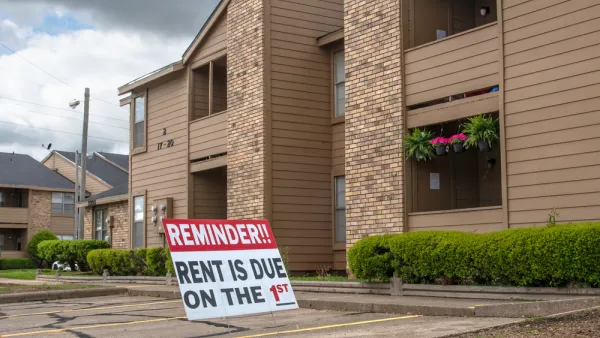What's good for pension funds and real estate investment trusts is likely bad for renters.

Dan Fumano reports on the growing footprint of large institutions in the rental market of Canada.
Mark Goodman, of Goodman Commercial, Metro Vancouver’s busiest agent for the sales of apartment buildings, shares insight into how the real estate market in British Columbia will change as a result of the coronavirus pandemic. Goodman's message: pension funds and real estate investment trusts, or REITs, are all keen on expanding their presence in B.C.’s rental housing sector.
Such market activity would further a trend already at work in Toronto, according to Fumano.
Vancouver’s rental housing landscape has been shifting recently away from local mom-and-pop landlords to large, mostly Toronto-based financial companies — including multi-billion-dollar pension funds, asset management firms and REITs. Experts expect that trend will only increase, despite the pandemic, as returns for investors have been great.
To those institutions and brokers, the news is good, because profits are high. But to the middle class and low-income communities that depend on housing affordability, the trend raises concerns. To sound alarms about the long-term effects of such trends, Fumano cites Jill Atkey, CEO of the B.C. Non-Profit Housing Association, as well as Thom Armstrong, CEO of the Co-operative Housing Federation of B.C. Both organizations have proposed “a made-in-B.C. solution” to the problem, reports Fumano.
In recent weeks, the groups have begun talks with the provincial government to outline a proposal for a $500 million capital fund from the province. The idea is to enable non-profits to buy apartment buildings when they come up for sale and preserve them as affordable non-profit homes, before institutional investors can acquire them as profit-generating assets.
Fumano notes that rental markets are being consolidated by large institutions all over the world, and the United States is no different. A recent opinion piece by Senator Elizabeth Warren and Carol Fife raises alarms of the same forces consolidating real estate assets during the current pandemic depression, like they did in the United States after the Great Recession.
FULL STORY: Big money bets big on B.C. rental: 'Good news' for investors, 'worst fears' for residents

Analysis: Cybertruck Fatality Rate Far Exceeds That of Ford Pinto
The Tesla Cybertruck was recalled seven times last year.

National Parks Layoffs Will Cause Communities to Lose Billions
Thousands of essential park workers were laid off this week, just before the busy spring break season.

Retro-silient?: America’s First “Eco-burb,” The Woodlands Turns 50
A master-planned community north of Houston offers lessons on green infrastructure and resilient design, but falls short of its founder’s lofty affordability and walkability goals.

Test News Post 1
This is a summary

Analysis: Cybertruck Fatality Rate Far Exceeds That of Ford Pinto
The Tesla Cybertruck was recalled seven times last year.

Test News Headline 46
Test for the image on the front page.
Urban Design for Planners 1: Software Tools
This six-course series explores essential urban design concepts using open source software and equips planners with the tools they need to participate fully in the urban design process.
Planning for Universal Design
Learn the tools for implementing Universal Design in planning regulations.
EMC Planning Group, Inc.
Planetizen
Planetizen
Mpact (formerly Rail~Volution)
Great Falls Development Authority, Inc.
HUDs Office of Policy Development and Research
NYU Wagner Graduate School of Public Service



























